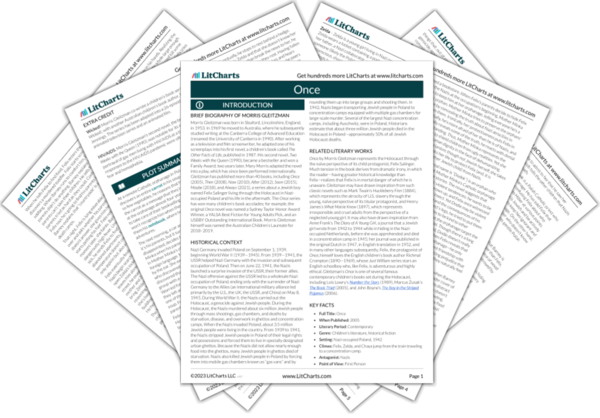Chaya extends Ruth’s use of “goblins” to describe Nazi soldiers to explain what happened to her own family. She says the goblins wanted “information about their enemies,” which indicates that Nazis tortured Chaya and her family for information about the Polish Resistance (military and civilian groups in occupied Poland that smuggled intelligence to Allied forces fighting the Nazis, sabotaged Nazi supply lines, engaged in guerilla fighting against Nazi soldiers, and so on). That Chaya explains symbolically what happened to her using fairy-tale terminology shows that stories can help people indirectly communicate truths that are too painful to convey directly. Given the horrible tragedies that the other children have experienced, readers may wonder whether Felix is in fact “lucky”—or whether bad things have happened to his parents without his knowledge.


